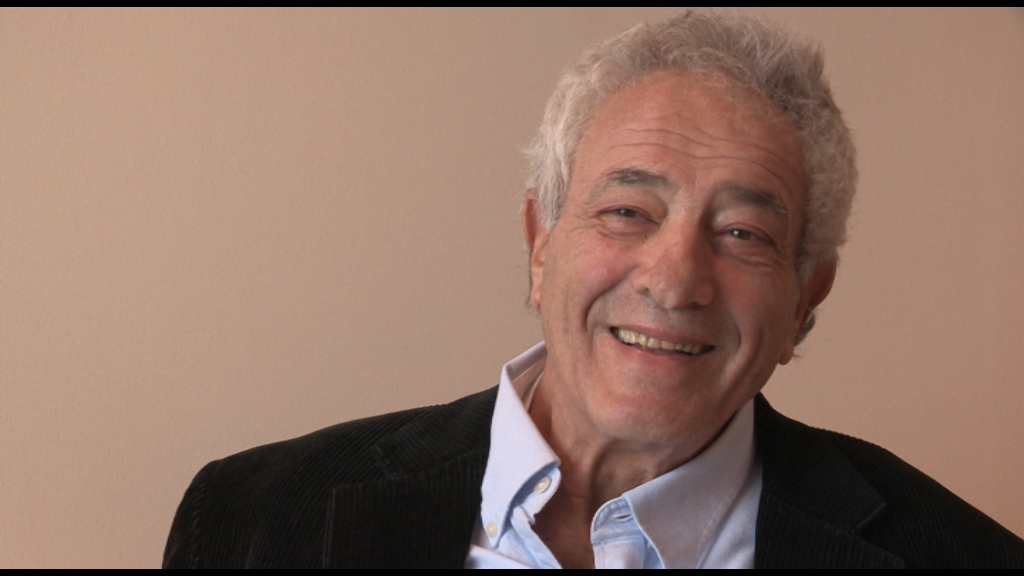NEXT STORY

Listening to the women in my life
RELATED STORIES

NEXT STORY

Listening to the women in my life
RELATED STORIES


|
Views | Duration | |
|---|---|---|---|
| 51. Getting a blasting from Ron Blass | 33 | 07:27 | |
| 52. Proud to be British | 23 | 02:25 | |
| 53. Publishing becomes political | 12 | 04:16 | |
| 54. Listening to the women in my life | 26 | 04:37 | |
| 55. Missing England | 31 | 06:57 | |
| 56. The future of book publishing | 36 | 02:06 | |
| 57. How to be a successful publisher | 22 | 03:14 | |
| 58. On being a 'great' publisher | 26 | 02:05 | |
| 59. My policy is to have no formal policy | 16 | 02:06 | |
| 60. Britain’s cultural imperialism | 20 | 03:15 |


They were momentous years in British publishing. And you may want to read a chapter that I wrote in a book published by the University of Manchester Press, or the University of Bristol Press, about my first ten years at Penguin, and the political ferment going on in Britain at that time. It was the Callaghan Government. I did not come in under Mrs Thatcher; Mrs Thatcher happened to me and to us and to Britain in the second or third year that I was here.
But it was the famous Winter of Discontent. We arrived with ambulances not taking people to hospitals and garbage not picked up, and the famous Saatchi slogan, and so on. I didn't understand the union issues, but I was not used to dealing with unions because to the extent that we had unions in America, they were not ideological, they were about meat and potatoes issues. In Britain at that time, unions were quite ideological and the staff at Penguin to some extent believed that Penguin itself was a vehicle for change. And a large proportion of the staff came from British universities which I don't want to say had been radicalised, but the notion was that a more social way of organising a society was the way to go, a more collective approach. I didn't necessarily even disagree with that.
I was not especially political, but I did know that my job was to bring Penguin back to health. It had not been in health for seven years, and its publishing had become in that period increasing political. And I would have been perfectly happy with that political stance if anybody had been buying the books, but nobody was buying the books. The books were political, they were looking to change British education, British management, British capitalism, but nobody, in any number at least, was buying those books because the idea was that workers would buy these books and become educated, or more educated or incentivised intellectually to a different way of doing things.
But as we know, working people… or we now know that working people don't necessarily operate by theory; they are practical people, they are working people. And the carriers of these messages, as I came to know them within Penguin, were mostly not workers at all, they were middle class or upper middle class or rich. They had been to… many of them had been to private schools, private education, but they were ostensibly very left wing. They were very left wing without actually wanting to give up any privileges, I discovered.
Peter Mayer (1936-2018) was an American independent publisher who was president of The Overlook Press/Peter Mayer Publishers, Inc, a New York-based publishing company he founded with his father in 1971. At the time of Overlook's founding, Mayer was head of Avon Books, a large New York-based paperback publisher. There, he successfully launched the trade paperback as a viable alternative to mass market and hardcover formats. From 1978 to 1996 he was CEO of Penguin Books, where he introduced a flexible style in editorial, marketing, and production. More recently, Mayer had financially revived both Ardis, a publisher of Russian literature in English, and Duckworth, an independent publishing house in the UK.
Title: Publishing becomes political
Listeners: Christopher Sykes
Christopher Sykes is an independent documentary producer who has made a number of films about science and scientists for BBC TV, Channel Four, and PBS.
Tags: Penguin Books
Duration: 4 minutes, 16 seconds
Date story recorded: September 2014-January 2015
Date story went live: 12 November 2015